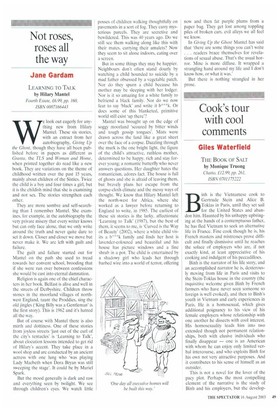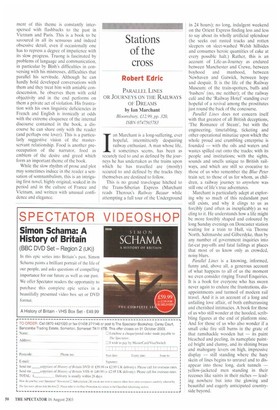Cook's tour with cool comments
Giles Waterfield
THE BOOK OF SALT by Monique Truong Chatto. 412.99, pp. 261, ISBN 0701175222 Binh is the Vietnamese cook to Gertrude Stein and Alice B. Toklas in Paris, until they set sail for the United States and abandon him. Haunted by his unhappy upbringing at the hands of a contemptuous father, he has fled Vietnam to seek an alternative life in France. Fine cook though he is, his French masters and mistresses prove difficult and finally dismissive until he reaches the solace of employers who are, if not exactly kind, at least appreciative of his cooking and indulgent of his peccadilloes.
Binh is the narrator of his life story, and an accomplished narrator he is, dexterously moving from life in Paris and visits to the Stein-Toklas house in the country (the inquisitive welcome given Binh by French farmers who have never seen someone so foreign is well evoked), and then to Binh's youth in Vietnam and early experiences in Paris. He is a homosexual, which gives additional poignancy to his view of his female employers whose relationship with one another he dissects with cool interest. His homosexuality leads him into two extended though not permanent relationships, both with elusive individuals who finally disappear — one is an American with whom he can enjoy only limited verbal intercourse, and who exploits Binh for his own not very attractive purposes. And it contributes to his sense of himself as an outsider, This is not a novel for the lover of the pacy plot. Perhaps the most compelling element of the narrative is the study of Binh and his employers, but the develop
ment of this theme is constantly interspersed with flashbacks to the past in Vietnam and Paris. This is a book to be savoured in all its sensuous and indeed obsessive detail, even if occasionally one has to repress a degree of impatience with its slow progress. Truong is fascinated by problems of language and communication, in particular by Binh's difficulties in conversing with his mistresses, difficulties that parallel his servitude. Although he can hardly hold developed conversations with them and they treat him with amiable condescension, he observes them with cold objectivity and in the end performs on them a private act of violation. His frustration with his own linguistic deficiencies in French and English is ironically at odds with the extreme eloquence of the internal discourse contained in the book, a discourse he can share only with the reader (and perhaps one lover). This is a particularly suggestive vision of the masterservant relationship. Food is another preoccupation of the narrator, food as emblem of the desire and greed which form an important theme of the book.
While the slow rhythm of prose and plot may sometimes induce in the reader a sensation of somnambulism, this is an intriguing first novel, highly original, soaked in its period and in the culture of France and Vietnam, and written with unusual confidence and elegance.











































































 Previous page
Previous page